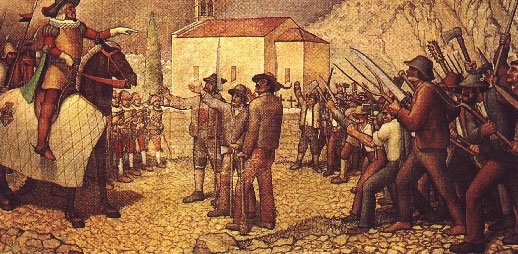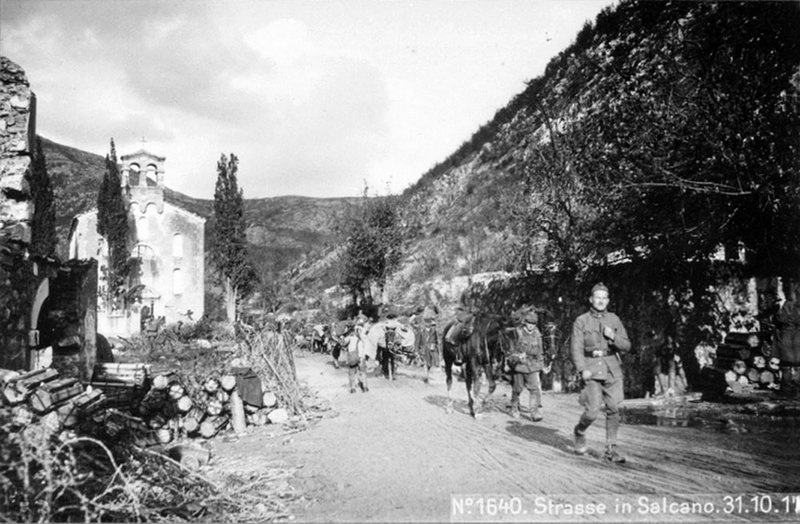About the school
The School of Humanities of the University of Nova Gorica is located in a cross-border area along the Slovenian-Italian border, in the twin-city zone of Nova Gorica and Gorica. At the undergraduate level, it offers the university study programs Language and literature in the digital world, Slovenian Studies and Cultural History, and at the graduate level the Master's program in Humanistic Studies with the following tracks: Linguistics, Literary Sciences, and History and Culture of Cross-Border Areas, as well as the Master's study program Migration and Intercultural Relations (Erasmus Mundus).
Small groups of students and dedicated mentors enable a way of working adapted to the individual and their interests. The courses are often practically oriented, as students partly work in local organizations and companies during their studies, as well as participate in international research at the university. Students have the opportunity to experience various forms of international mobility and get to know other European countries within the framework of various mobility options. The study courses mostly use newest digital contents and contemporary tools, which prepares young people well for the labor market in the 21st century.
The School of Humanities offers a combination of studies in traditional humanities topics and current knowledge. We find it essential to:
- ensure that our programmes will meet the highest-quality scientific, professional and didactic standards;
- equip our students with the knowledge and skills required to successfully continue their studies as well as conduct research and professional work in Slovenia or abroad;
- generate and develop new methodologies in humanities in Slovenia;
- be able to investigate both local characteristics and broader global phenomena;
- and have the capacity to pass our knowledge on to our students, colleagues and the general public.
Most of the School’s associates are young, yet well-established researchers, many of them pursued part of their academic education abroad where they continue to participate in scientific or academic projects, thus ensuring a rapid and effective exchange of ideas between international and Slovenian academic spheres.
All our study programmes above have been developed with the same end in view, which shall continue to provide central orientation in developing new contents that will – while remaining faithful to the old humanities motto Animus facit nobilem – offer the knowledge and expertise that cannot be attained by any other available study programme of this kind.
The School of Humanities is tightly linked with the Research Center for Humanities and with the Center for Cognitive Science of Language.
Mission
The mission of the School of Humanities is to present the traditonal and new (those rarely presented so far) humanistic insights, founded on contemporary, internationally relevant scientific publications, an incorporation of these contents into the Slovene national space, and an encouragement of multiculturalism. An added value of all the programmes offered at the School of Humanties is the contents that are highly relevant for an intercultural dialogue within the context of the national borders territory in which the School is situated. Within this region, a humanistic tudy is of vital significance, since it helps promote an understanding of the past which used to be a factor which made mutual life of the peoples living in the region difficult.
At the same time, in a Europe without borders, a respect for national identities is equally relevant; hence Slovene language and culture are uniquely preserved in the study programmes and scientific contents offered by the University of Nova Gorica.
Vision
By following scientific excellence and highest educational standards, our aim is to enrich Goriška, Slovene and international context with new humanistic insights and programmes, and through them to contribute to creating connections between the academic and social public in the region in which we live and act.
Dean and Senate
Dean
prof. dr. Franc Marušič
+386 5 33 15 207
franc.marusic@ung.si
Senate
prof. dr. Franc Marušič
doc. dr. Jasna Fakin Bajec
prof. dr. Marina Lukšič Hacin
izr. prof. dr. Kristina Pranjić
doc. dr Petra Mišmaš
izr. prof. dr. Rok Žaucer
prof. dr. Katja Mihurko
pridr. prof. dr. Leonora Flis
Petra Bolta – predstavnica študentov_k
Gordan Stefanov – predstavnik študentov_k
Schedule of regular sessions of the Senate of the Faculty of Humanities in 2025
- 12. 2. 2025 od 10.00 do 12.00,
- 23. 4. 2025, od 10.00 do 12.00,
- 18. 6. 2025 od 10.00 do 12.00,
- 27. 8. 2025, od 10.00 do 12.00,
- 22. 10. 2025 od 10.00 do 12.00.
- Seje senata Fakultete za humanistiko
Council of the Faculty of Humanities
In 2022, we established the Council of the Faculty of Humanities of UNG, which helps to guide the development of the Faculty and its programmes and projects, its positioning in the social and professional environment, and to update the employability of graduates. The composition of the Council reflects a representative range of professional and academic profiles; national, regional and cross-border representation; and coverage of all programme or academic areas of the UNG Faculty of Humanities:
Irena Škvarč
Director of the France Bevk Public Library Nova Gorica
President of the Association of Librarians of Primorska
Ernesta Dejak Furlan
President of the Slavic Society of Nova Gorica
Dr Barbara Beznec
Researcher and expert in the field of migration, ZRC SAZU
Dr Boban Arsenijević
University of Graz, Institute of Slavic Studies, Austria (Professor of Linguistics)
Miha Kosovel
Association of Humanists of Goriška, Research Fellow
Razpotja magazine, editor
Mag. Neda. R. Bric
Programme Manager Go!2025 ECOC Nova Gorica / Gorica
Dr. Tanja Martelanc
Director of the Nova Gorica Provincial Archives
Andrej Šušmelj
Principal of the
Anja Medved
Internationally renowned independent filmmaker
Dr. Marko Klavora
Curator-Historian, Gorica Museum
Tina Mihelj
Project Manager at the Nova Gorica and Vipava Valley Tourist Board
Mateja Kralj
Caretaker of the Kosovel Room in Sežana
Matejka Milost
Director of the Slovenian Educational Consortium – SLOV. I.K.





